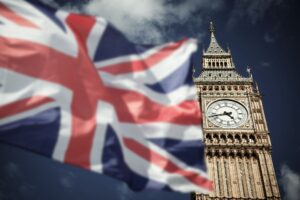Two leading UK charities are demanding the government creates an ‘Essentials Guarantee’ which will ensure Universal Credit payments will never fall below food and utilities costs.
The Joseph Rowntree Foundation (JRF) and The Trussell Trust (TT) – two of the UK’s most prominent anti-poverty organisations – have conducted research into the basic rate of Universal Credit and discovered it is currently not enough to ensure people can afford essentials.
The charities discovered the current standard allowance is £35 less than a conservative estimate for what a low-income single person would need to cover everyday essentials and £66 less than what a low-income couple needs.
Against this backdrop, experts from the charities found a single person requires at least £120 per week – £200 a week for a couple – after using an indicative shopping basket of items such as food, clothes, utility bills and toiletries.
Universal Credit is currently based on an individual’s earnings – it’s paid monthly and is subject to people’s circumstances, which is otherwise known as an ‘assessment period’. However, with the current costs of inflation continuing to soar, people aren’t being provided enough money to ensure they can live with basic essentials.
Both the JRF and TT have exclaimed that it’s ‘extraordinary’ that the basic rate of Universal Credit is not established on how much it costs to afford essentials and vital household items.
Paul Kissack, Chief Executive of JRF, said: ‘We should all have peace of mind that – if we lose our job, need to care for a sick family member or break up with a partner – basic support will be there for us.
‘Our social security system is meant to give us that peace of mind. But with millions of low-income households going without essentials like food and heating, and foodbank use at record levels, it is plain that the system is failing.
‘20 years ago, as a nation, we started moving towards a lasting cross-party social settlement that older people shouldn’t have to skip meals to save money or sit in a cold home. Today we need a similar settlement for working-age people – a new guarantee that the basic social safety net will always allow families to afford the essentials.’
If the government climb on board with the idea of the ‘Essentials Guarantee’ it will be the first time that social security rates would focus on what people need.
The new rule would be set regularly, fixed on an independent recommendation, to ensure that whilst in receipt of Universal Credit, everyone will be able to afford essentials and maintain their health and wellbeing.
In November 2022, the government made a step in the right direction when they decided to increase Universal Credit Rates in line with inflation, however, both charities believe more work can be done.
According to recent survey, 66% of people in the UK believe the basic rate of Universal Credit is too low and 67% have reported they are unable to afford vital essentials.
Research has also shown over two thirds of people in poverty would benefit from the Essentials Guarantee – it would also lift around 1.8 million people out of poverty altogether, including 600,000 children.
Photo by Jo Smiley Hailey and Enrico Mantegazza



















Leave a Reply